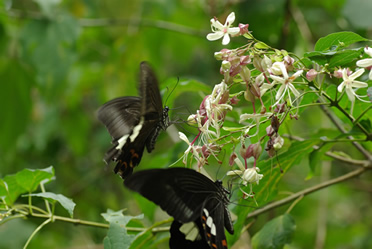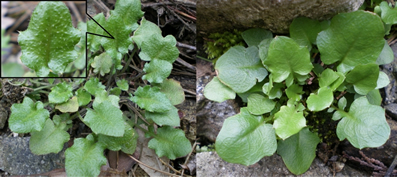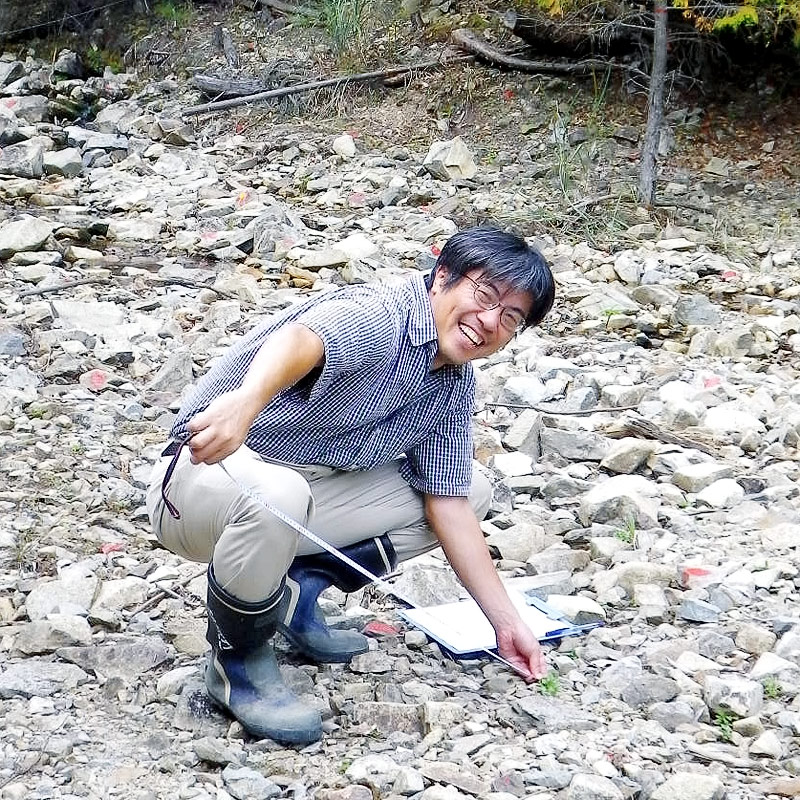Research
Molecular Ecology of Brassicaceae
The aim of our research group is to study ecological processes in adaptation and diversification of plants. We apply the molecular ecological approach to study wild Brassicaceae.
Ongoing projects
Molecular flowering phenology in natura
Predicting and regulating transcriptomic dynamics in the field
Analysis, prediction and control of biological systems under complex environments (Dr.Atsushi J. Nagano)
Natural environments are highly fluctuating in contrast with laboratory environments. Biological responses under the fluctuating environments have never been investigated in the molecular biology. However, it is essential to understand, predict and control the dynamics of biological systems under the fluctuating environments for elucidating true features of organisms and for applying the knowledge to solve actual problems. Now, I am tackling this issue with following technologies; highly parallelized high-throughput measurements (especially genomics and transcriptomics), cutting-edge informatics, integrative analysis with omics data and meteorological data and personal fabrications.
Analysis of transcriptome dynamics under field conditions (Dr.Koji Iwayama)
In natural environments, or agricultural fields, transcriptome dynamics of plants fluctuate in response to the complex fluctuating environments. To reveal the manner of response to natural conditions, we are developing the statistical model of transcriptome dynamics. The model enables us to predict gene expression, measurement of which require large cost, using meteorological data. We also develop the computationally efficient method to estimate optimal values, likelihood, or posterior probabilities of parameters of the model.
Phylogeography and evolutionary history of Japanese vegetation
Local adaptation and diversification of plant populations
Species interactions between plants and their natural enemies
Relationships between flower and pollinator (Dr.Ryota Sakamoto)
 Research interests are in Pollination ecology. I am studying relationships between pollinator behaviors and plant reproductions as revealed by high-speed camera, 3D-printer, and more.
Research interests are in Pollination ecology. I am studying relationships between pollinator behaviors and plant reproductions as revealed by high-speed camera, 3D-printer, and more.
Evolutionary Ecology of Genetic Diversity in Plant Defense (Yasuhiro Sato)
Plants develop various defense traits against herbivory. Generally, it has been assumed that an optimal defense strategy should evolve because of a tradeoff between defense and growth. However, in nature, we often found genetic polymorphism in an anti-herbivore defense trait even within a single population. In this case, herbivory risk on an individual plant depends not only on plant’s own traits but also those of neighboring plants. We focus on such “associational effects” in anti-herbivore defense to address how they influence the maintenance or loss of genetic diversity in plant defense. Specifically, to answer this question, we are using the trichome dimorphism of Arabidopsis halleri subsp. gemmifera.
 Figure: Hairy (left) and glabrous (right) plant of Arabidopsis halleri subsp. gemmifera. The dimorphism is associated with variation in a single locus.
Figure: Hairy (left) and glabrous (right) plant of Arabidopsis halleri subsp. gemmifera. The dimorphism is associated with variation in a single locus.
Revealing virus diversity and its maintenance mechanism in wild plants using RNA-Seq (Mari Kamitani)
Research on plant viruses has been developed mainly in agricultural and horticultural studies, thus little is known about plant viruses from ecological viewpoint. However, plant viruses are very common to spread widely in natural plants. To reveal the diversity and its maintenance mechanism under natural environment are important. Moreover, viruses in wild plants can act as a reservoir of crop disease and/or strong selection pressure on host plants. We use RNA-Seq to detect viruses and reveal the plant virus diversity under natural environment. We also analyze the distribution condition and transmission route of virus to identify factor involved in diversity maintenance.
Genetic structure and life-history of clonal plants
Conservation biology of Brassicaceae
Genome-wide analysis of polymorphism by means of RAD-Seq
Welcome to Kudoh lab.

Plant Evolutionary Ecology: from Molecular Mechanisms to Adaptation
The aim of our research group is to study ecological processes in adaptation and diversification of plants. We apply the molecular ecological approach to study wild Brassicaceae.
